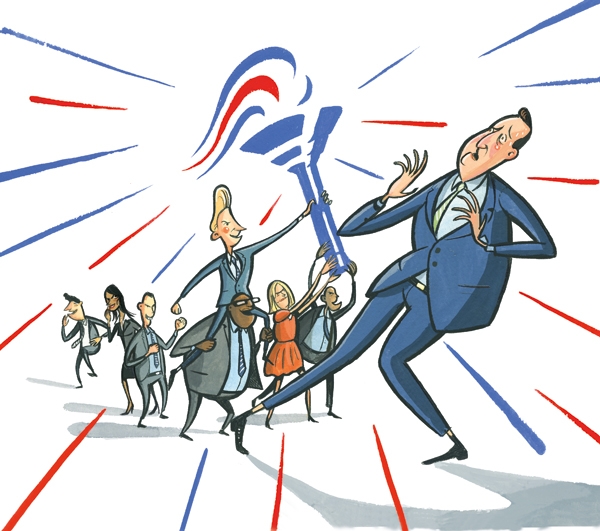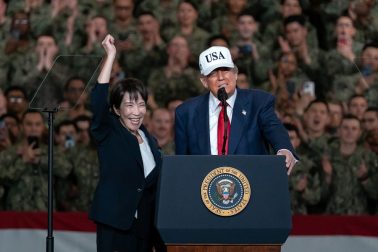The Conservative debate about the minimum wage continues today, with campaign group Renewal pushing for an increase, at least in line with inflation. Renewal is launching an interesting agenda today aimed at making capitalism work for groups who currently feel it fails them, such as the low paid and those living in deindustrialised towns in northern England.
The group’s work, ‘Renewing Capitalism’, is supported by Robert Halfon, the Tory MP who is always trying to work out ways of broadening the Conservative appeal. He says: ‘It was a big mistake for the Conservative party to oppose the minimum wage. We must right that wrong by at least increasing it in line with inflation. We should not make the same mistake. We must move on to ensure that everyone, in the north and the south, on low wages as well as high, can benefit from the proceeds of growth. If we say that the Conservative Party is on the side of hardworking people then we have to really mean it.’
This isn’t particularly surprising coming from Robert Halfon, whose views on the labour market and Conservative appeal are well known. But what is interesting is the way the Conservative party is conducting itself on this debate about raising the wage. Broadcast producers are struggling to find anyone who will come on to argue that this is a bad idea. Last week Halfon found himself having a debate on Newsnight with another Tory MP, Mark Reckless, who also agreed that the minimum wage should go up and that the party made a mistake opposing it in the past. Meanwhile, other MPs normally associated with the Right of the party such as Stewart Jackson, have also publicly said that the party made a mistake and that they too are lobbying the Chancellor for a rise. This has caused some excitement from those watching the debate, who think that even the Right now see the case for a rise.
It is certainly true that some on the Right of the party now see the case. But this debate actually rather usefully highlights the shape of the Tory party and particularly its right wing. The Tory Right is not a mass that thinks the same on everything. It has a key divide when it comes to economic thinking between those Free Enterprise Group MPs, mostly elected in 2010, who worry that higher minimum wages would cost jobs and argue that there is a desperate need for dramatic scaling-back of employment regulation, and other MPs, often from earlier intakes and particularly from the 2005 intake, who are now more sanguine about wages and other issues. In June 2012, James illustrated the sharp distinction between these two groups, writing:
‘They are a movement, not a faction, so it is impossible to assign firm membership. But it is safe to say that all of them are in the ‘Free Enterprise’ group of 39 Tory MPs, convened by Truss. A few years ago, ‘Free Enterprise Conservative’ might have sounded like a tautology. But when these MPs arrived in Westminster, they were aghast at the intellectual flabbiness they found. They worried that the party had stopped arguing from first principles. Their aim is to ensure that the case for the market and a smaller state is not lost by default. The group’s members have been prepared to argue for things that many Tories think but fear to discuss: freezing the minimum wage, abolishing the Low Pay Commission.’
Earlier that month, the FEG proposed exempting small businesses with up to three employees from employment regulation including maternity and paternity leave and the minimum wage. At the time, it looked as though they and those who feel anxious about the effects of a higher minimum were winning the debate. But their colleagues who worry more about focus groups and political messages now seem to be in the ascendancy, while those who might be campaigning internally for exemptions and freezes are staying very quiet indeed, as you’d expect when something appears to have the Chancellor’s backing.







Comments